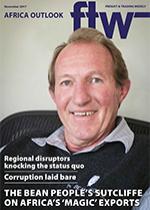Z imbabwe’s controversial police have been described in a new report as “little more than an officially authorised shakedown and a means by which Zimbabwe’s broke government seeks to fund a massively under-resourced police force”. Consultant for the Institute for Security Studies’ peace and security research programme, Derek Matyszak, highlighted in an ISS report last month that the source of the problem was a decision to allow the police to retain a percentage of the fines they collected. “This creates an incentive for the over-regulation of traffic and inducement to find as many drivers as possible guilty of traffic offences, real or imagined,” he said, explaining that drivers needed to be induced to hand over cash. And this is where the already murky waters are muddied even further. The modus operandi of the police at the roadblock is to demand to see the driver’s licence and whatever “violation” the driver has reportedly committed is no longer the issue as it soon becomes clear that the officer has no intention of returning the licence until the fine has been paid in cash, on the spot. This was confirmed in an op-ed piece for Canadian publication Globe and Mail by Robert Rotberg, founding director of Harvard Kennedy School’s Programme on Intrastate Conflict. He described in graphic detail how the car he was driving in was flagged down, how a constable F Moyo “sternly checked for the car’s fire extinguisher and its precise placement, for the two emergency plastic triangles with a serial number that all must carry, and for the green fluorescent safety vest that must be available at all times”. The fire extinguisher was there, but Constable Moyo did not like the way in which it was affixed inside the car’s boot, explained Rotberg. He demanded a US$30 fine. When questioned by other local passengers as to the validity of the alleged offence, Moyo reportedly said regulations had changed. Long story short, wrote Rotberg, eventually the constable grabbed not only the driver’s licence but his car keys as well. “There was menace aplenty, but no actual violence,” said Rotberg, pointing out that the situation was only resolved when he intervened and offered a US$20 bribe to avoid the fine. Moyo reportedly also said that he was proud of his reputation as a fleecer of drivers. “You will find me on Facebook,” he said. “I am famous for dealing with you people.” Matyszak said the traffic police violated multiple regulations in following this practice but central governmental collusion in this illicit process was readily apparent. According to him finance minister, Patrick Chinamasa, has proposed raising the penalty for minor traffic violations by $10 to $30, and projected amounts accruing from roadblocks ($60 million) have been officially incorporated in the budget of the home affairs ministry. “Police stations are given monthly roadblock revenue targets, and individual police officers are ordered to raise set amounts daily from fines,” he said, commenting that the short-term advantage of this revenue stream was more than offset by the lack of respect for the police that had developed as a result. He described events similar to Rotberg’s account where heated arguments took place at roadblocks and drivers often resorted to driving away rather than parting with their licences. To prevent this, the traffic police are now arming themselves with home-made spiked metal plates that shred the wheels of drivers intending to flee. There have been multiple reports in the local media about government’s intention to “better regulate” the roadblocks, particularly as some cabinet ministers have raised concern about a resultant loss in trade and tourism. To date, transporters tell FTW that this has not been implemented.
Individual police officers are ordered to raise set amounts daily from fines. – Derek Matyszak

